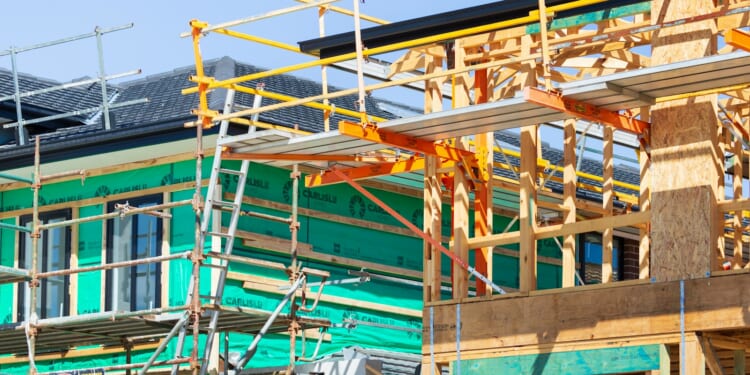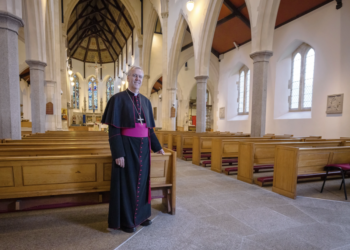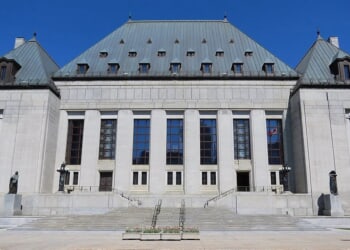James Yucel is Head of Campaigns at Onward & Director of Conservative YIMBY
If the revival of aspirational conservatism is to begin anywhere, it will not be in Westminster but in the parish halls and planning committees of Middle England. Councillors, often dismissed as caretakers of potholes and bin rotas, now hold the keys to something far greater: the return of the property-owning democracy.
For decades, the Conservatives were the party of builders. Macmillan’s 300,000 homes a year were not just an economic goal but a moral one. Thatcher knew that ownership created responsibility and independence. Yet too many local Tories now treat development as desecration. Every car park becomes a “green space”, every planning reform a threat. The result is a country that lovingly preserves its past but cannot afford its future.
Britain’s housing shortage is measurable and shameful. We are 6.5 million homes short. To close that gap by 2040, we would need to build 565,000 a year – more than twice the current rate. Just 39 per cent of young people own a home, compared with 59 per cent at the turn of the millennium. The average deposit has tripled since 2000, while the average house now costs nine times the average salary. Britain has 446 homes for every 1,000 people, compared with 560 in France.
These figures form the backbone of The Conservative YIMBY Candidates’ Handbook, launched earlier this month at our packed-out Conference Builders Rally. It is a practical guide for Tory hopefuls, showing how to win elections by making the Conservative case for building. The handbook’s argument is simple: the loudest voices in planning meetings do not represent the majority. Polling by Public First finds 55 per cent of voters back new homes in their area, while just 33 per cent oppose them. Among 30- to 39-year-olds open to voting Conservative, support for building is stronger than among Labour or Reform voters. The silent majority is waiting to be led.
The Windsor and Maidenhead case study proves it can be done. Under Council Leader Simon Dudley, Conservatives approved 1,800 homes at Maidenhead Golf Club and struck joint ventures with developers. In 2019, while the party nationally lost more than 1,300 councillors, Windsor and Maidenhead held steady. When some of Dudley’s successors turned anti-housing, they were wiped out by the Liberal Democrats. The lesson is clear: you cannot out-NIMBY the Lib Dems. Other local housebuilding champions such as Ben Fletcher, the party’s candidate for Cheshire and Warrington, Colin Noble, former leader of Suffolk Conservatives, and Cllr Adam Chinnery of Brentwood Council already understand this. They know that the path back to power runs through decisive action, not endless consultations and petitions.
If Conservatives really want to protect the countryside, they must build in towns and cities. Growth should rise upward, not sprawl outward. Councils such as Southwark, which bury viable schemes under endless consultation, are not protecting heritage – they are exporting pressure onto rural Britain. Local Conservatives should be the ones cutting through the fog.
The party’s conference pledge to abolish stamp duty is the sort of confident reform Conservatism used to produce. The tax punishes aspiration and strangles movement. Scrapping it would free families to move and send a signal that the party still stands for ownership. And the Shadow Justice Secretary Robert Jenrick deserves particular credit for leading the fight on this. Statistically, he remains the most successful Housing Secretary in British history, overseeing two quarters with more than 100,000 planning approvals. He treated housing as a moral mission rooted in Conservative principle, not a bureaucratic nuisance. Compare that with Labour’s Steve Reed, who has so far produced more TikToks than policies. One delivered homes; the other delivers hashtags.
Housing shortages do not just hurt renters; they stifle families, businesses and pensions. Without new homes, young people delay marriage and children, birth rates fall, and the social contract begins to break. Failing to build is not just bad economics: it is moral negligence.
Local candidates now face a choice. They can join the timid chorus that blocks everything, or they can reclaim the party’s builder’s mantle. The voters are ready. Polls show majorities across parties and regions back new homes, especially on derelict or brownfield land. Conservatives who champion construction speak for the quiet majority, not the noisy few.
National politics may have grown theatrical and timid, but local Conservatives can act. They can point to the empty lots and stalled plans and say what everyone knows: Britain must build – in towns, cities and high streets – to take pressure off the countryside and restore the promise of homeownership.
The future of the party will not be written in Downing Street anytime soon but in the planning committees of Guildford, Basingstoke and beyond. There, in those fluorescent-lit rooms where real decisions are made, the New Blue Builders must make their stand.








![Trump, Hegseth to Get Troops Paid Despite Dems Voting Against it Eight Times [WATCH]](https://www.right2024.com/wp-content/uploads/2025/10/Trump-Hegseth-to-Get-Troops-Paid-Despite-Dems-Voting-Against-350x250.jpg)








